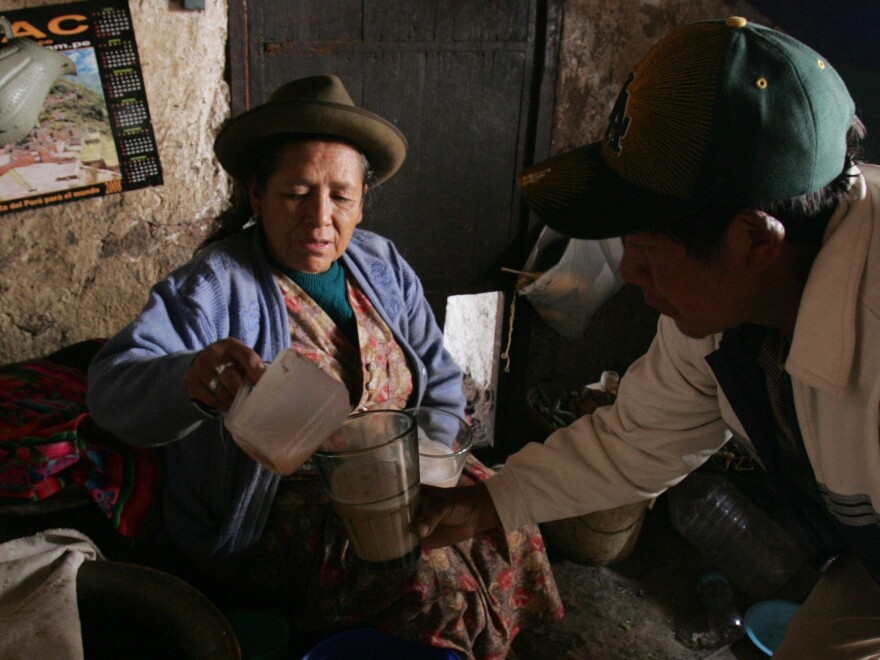Sometimes reporters reach for that tongue-in-cheek phrase that they think listeners will understand, and it offends instead.
On May 8, freelance reporter Banning Eyre reviewed the new album by a Brooklyn-based band inspired by Peruvian music called Chicha Libre. "It's easy to imagine that this music was made by lowlife Peruvian musicians in the '60s, tipsy on chicha wine and surf guitar," he said on air.
Having spent much time in Peru (and drunk mucho foul-smelling chicha dipped from barrels while it fermented), I understood where Eyre was coming from. Some listeners, however, were not amused.
Steve Robinson, general manager of the Chicago classical music radio station , and Elbio Barilari, host of WFMT's radio series "Fiesta!," co-wrote a protesting letter:
I hope you'll agree that characterizing any group of musicians, whether they are from Peru or any other country, as "low-life" and "tipsy on...wine" is not language or images long-time fans of NPR such as Elbio and myself expect to hear. We hope NPR will issue an apology.
I forwarded the letter to Eyre and All Things Considered'sSupervising Senior Producer Gerry Holmes. Both men agreed that the attempt to be colorful had failed. Wrote Eyre:
Lowlife was a poor choice of words. My apology for that. Chicha, like forro in Brazil and other celebratory music genres emerging from rough, working-class settings in South America, was, and in the case of Chicha, still is stigmatized and marginalized in mainstream society. It is associated not only with lower class life, but also low morality and even criminality. Ironically, such music is often lively and creative and appealing to the global world music market. Perhaps its marginal origins are part of that appeal. In any case, I did not mean to denigrate the music or its practitioners with my overly glib reference.
Holmes added that editors failed, too. "We should have caught the line in our editorial process," he said.
I am satisfied that Eyre had no bad intentions and is, in fact, sympathetic to Chicha music and musicians, though we all probably have heard some pretty bad renditions of it on street corners around the globe.
A saving grace of the NPR report is that the Web version of the segment, prepared by NPR Music's Web producers, opted for a straight-forward explanation that omitted the slur and expanded on introducing listeners to the music's origin:
Chicha is a corn-derived liquor native to the South American Andes since ancient times. It's also a quirky style of pop music that developed in the Peruvian Amazon in the 1960s and '70s. All of that provides inspiration for the Brooklyn band Chicha Libre, which has just released its second album, Canibalismo.
I am anxious to hear the album, but will forgo returning to the drink.
Lori Grisham contributed to this report.
More from the Ombudsman on NPR Music:
The Online Roulette of Music and Corporate Sponsors (April 27, 2012)
Please continue the discussion on Twitter or at my Facebook page.
Copyright 2021 NPR. To see more, visit https://www.npr.org. 9(MDA4NjIwNTkwMDEzMjI4NDY0MjY4ZTBlNA004))




